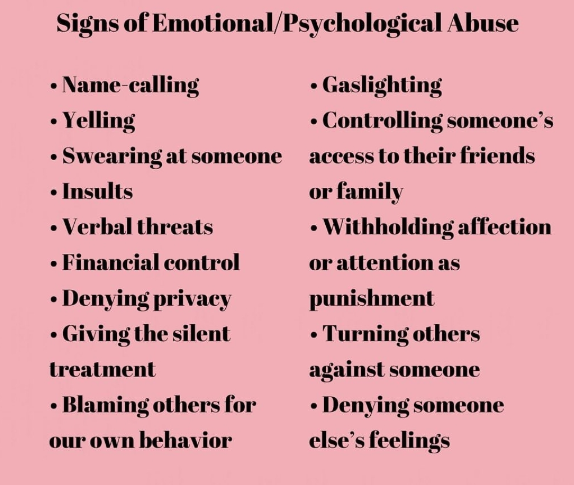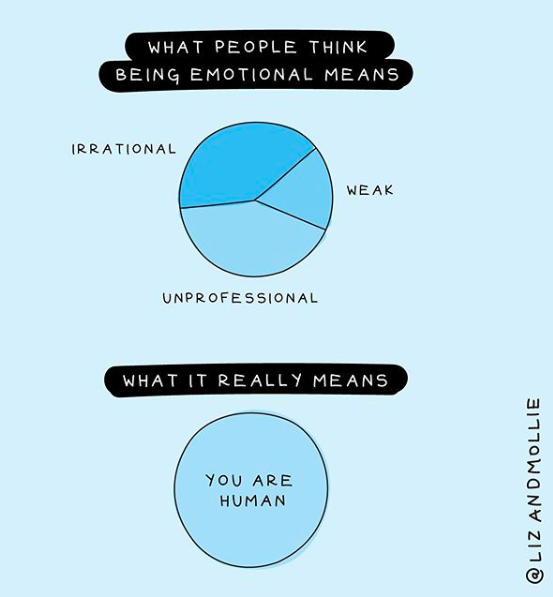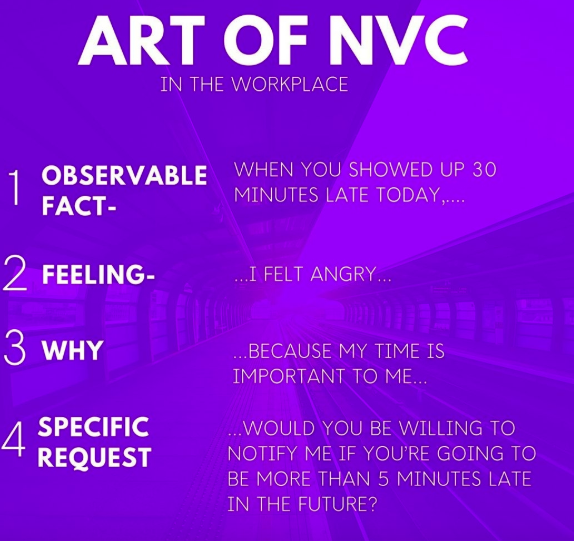Do you cringe at the thought of going into work? Got a weekly case of the Sunday scaries?
You are not alone.
Burnout is the new kale. It’s the word on the tip of everyone’s tongue in yoga studios, coffee shops, corporate America, coworking spaces, and of course, the nearest therapist’s office. Burnout is officially a ‘thing’ thanks to the World Health Organization who recently classified it as a medical condition. They explain, “Burnout is a syndrome conceptualized as resulting from chronic workplace stress that has not been successfully managed.”
So what happens if you’re experiencing workplace stress? What if it’s psychological abuse? What do you do? What should you do? At what point do you distinguish between the emotions you’re feeling and abuse? How on earth do you manage it all?
It depends.
No matter what the case, you shouldn’t ignore your emotions. As a woman, the last thing I want to hear is “stop being emotional” – especially at work. Emotions serve as signals to help us navigate the world and our place in it. Positive emotions at work are celebrated and negative ones stuffed.
Workplace stress can be driven by so many forms of abuse, some so subtle you may not even consider it abuse. For example:

Everyone experiences workplace stress differently. Some don thicker skin while others take things way too personally. If you dread going into work, engaging with a specific coworker, or certain meetings – spend some time thinking about why this may be. Is it really work or could it be something outside of work?
Abuse at work is something many people suffer silently. We don’t report bad behaviour for a variety of reasons. Maybe we don’t realise we’re being abused – assuming these are normative behaviors that won’t change. So instead we do.
When we are consciously aware, we might fear speaking up to avoid workplace retaliation (being ignored, backstabbing, negative performance reviews, exclusion from meetings, and the like). Whichever way you slice it, our health can suffer.

Then there’s emotional labour. These are all the unseen things we do like suppress our feelings, bite our tongues, or curb our enthusiasm. We stuff our feelings because we see it as an expectation of our job.
In the past, I was regularly a shadow of myself so as to fit in. But given the nature of my work now–I set the expectations that I’m gonna be me in all of my badassness. If you got a problem with it, well…
Whatever your feelings, it’s important to equip yourself with tools to manage for, or mitigate against, toxic work environments. Some tools may require high degrees of emotional intelligence and introspection on your part. Staying curious and reflecting on why something is bothering you can help you discern if it’s the work culture, a specific person, the project you’re working on, or something else. Here are four tools to help you navigate this terrain:
#1 Focus on your communication
There are many ways you can express yourself: passively, passive-aggressively, aggressively or assertively. Assertively is the way to go but it’s very much like a muscle that needs flexing.
Non-violent communication is a framework to use when trying to express your feelings or needs. A simple formula is: When you do X, I feel Y, because I need Z. This formula helps me communicate how I feel without directly attacking anyone. It separates the behaviour from the person. Most importantly, it equips me and my teams with a process that prevents anyone from feeling victimized. It’s action-oriented and forward-looking.
Another helpful model is the Five Secrets of Effective Communication, which spans three areas of focus – empathy, assertiveness, and respect.

I have been in situations where I’ve felt like I was riding the struggle bus. This ride has no direction, no seats or poles to hold onto! It’s uncomfortable, confusing and unsafe. The struggle bus is daunting but imagine having to ride it with your hands tied behind your back – it ain’t easy.
There are days when emails make me cringe. There are afternoons where I binge snack to fill my thwarted appetite of being seen and respected. There are times when specific colleagues make me want to run away and hide. It sucks. Feeling these things suck – but you know what else sucks? Not saying a darn thing. As author Laurie Buchanan put it, “Whatever you are not changing, you are choosing.”
#2 Perspective hacking: Moving from victim to superhero.
Choose curiosity over blame. Here are some questions to ask yourself that might help you change your perspective:
- Is this situation really that serious? Could seeing how trivial we actually are help me put things into perspective? (Watching this or this might do the trick)
- What if my colleague is actually trying their best? Can I see how they intend to do everything they can given the resources they have?
- Okay – that’s not happening. So could I at least let go of whatever is triggering me and circumvent this stress in some other fashion?
- Could this situation be designed to teach me something? Is this happening for me and not to me? What can I learn?
- Let me put myself in their shoes for a minute: What could they be going through to act or speak in these ways? (Since hurt people, hurt people – can I choose compassion?).
- What might they need right now and how can I meaningfully support them?
- Have I spoken up? Like really? And are they aware of what I’m feeling?
Someone once told me to imagine myself as a litre of milk (stay with me, I promise it’s not as weird as it sounds). My colleague, on the other hand, is a pint of milk. When they give it all I’d still only be half full (or half empty depending on the disposition). So do I focus on what’s missing or will I appreciate how they gave it everything they had?
You can imagine this is borrowed from the dynamic with a life partner, but the question remains the same in the workplace: which perspective will I choose? And choosing love is hard. Indeed, it’s just another tool.
Research shows that you can spur people to change by appreciating them. The 5 languages of appreciation in the workplace is a great resource. It takes the logic of love languages and applies them to the workplace. Appreciation is key to evoking more job satisfaction, better work relationships, and reduced cases of burnout.
Perhaps a colleague is in a funk because they feel underpaid and overworked. How might you help them flip the script? Remember, you can catch more flies with honey.
#3 Meditation
Meditation can help alleviate and reduce stress. ‘Tell me something I don’t know’ you’re thinking. Well, the thing is that when we have an enduring meditation practice we’re looking at the compound effects that go well beyond stress management. The loving kindness meditation is one of my favorite meditations but you can do whatever floats your boat.

You can even run lo-fi and practice being present in the form of the pause. Several times throughout the day take a minute or two and vacate everything. If so inclined try the 4-4-4 breathing technique. It’s simple, it’s powerful and even Navy Seals do it to calm down and relax.
- Inhale through your nose for 4 seconds
- Hold your inhale at the top for 4 seconds
- Exhale through your mouth for 4 seconds
- Hold for 4 seconds and then start again
- Repeat the cycle 3 times for as many times as you fancy
The point really is that the benefits of these types of practices are well known: increased patience, focus, productivity, and equanimity. What’s not to like?
#4 Seek help
Let me be clear: If these tools and recommendations do not work for you, and work continues to hurt – then seek help. You should not suffer in silence or allow yourself to become a volcano on the verge of eruption. Most companies have policies against bullying, retaliation, disrespect, abuse, and other toxic behaviours. Reach out to your HR business partner, or look at your policies. If you don’t have this luxury, please consider seeking external help with someone you trust.
If the ‘pain’ persists, take some dedicated time away to rest and reassess. It’s possible that things may subside. If they don’t, I would explore removing yourself completely from the situation – changing environments, departments, offices, projects, or the company.
You come first.
Rad’s 20 Survival Strategies
- Be nice to everyone. When you know better, you do better.
- Reduce contact with the problem as much as you can.
- Stay true to you. Don’t become a Debbie Downer if that’s not who you are. You can be assertive and still be kind.
- Gauge your stress and seek outlets for relief.
- Gauge your energy and refuel as necessary.
- Be your own boss (of your emotions) – don’t let someone dictate how you react to them, refuse to add fuel to the fire, decide what will be best for you in the long run.
- Don’t emulate the bad behaviors you see around you – despite how easy they seem to be.
- Resist retaliation – two wrongs don’t make a right. Be the hammer, not the nail.
- Instead of looking for the light at the end of the tunnel, be the light. Don’t go to work to throw shade onto others. Avoid office drama and gossip.
- Comparison may be the thief of joy, but not when you’re seeking better ways of working. Look for ways to be better.
- Flex your resiliency – mental toughness needs to continually be strengthened.
- Help others. You may be surrounded by people that are also hurting. Help them. Build a network of supportive colleagues in the process.
- Don’t mirror what you’re experiencing, try to counter it with gratitude or positivity. A person who feels appreciated will always go above and beyond what’s expected.
- Rev your engines – when everything seems to be going against you, remember the airplane takes off against the wind, not with it.
- Understand the nature of stress – we experience stress when demands are greater than the resources to meet them. Set the right expectations and boundaries.
- Build empowering habits – habits trump willpower.
- Do something physical – sweating makes a bit difference.
- Slow your breathing. Calm down.
- Document. Document. Document. In the wonderful world of electronic ‘paper’ trails and office politics, one must always CYA.
- Create an exit strategy. This is the last survival tip for a reason. Exhaust your tools before jumping ship. People don’t leave bad jobs, they leave bad bosses.
These are inspired by a plethora of books including many below as well as my good friend Google.
If Work Hurts Resources
- While we are all entitled to our bad days (and let’s be real, sometimes they roll over) experiencing distress for long periods of time may mean you’re experiencing something bigger, like depression. More information on symptoms here.
- Emma Seppala’s Loving Kindness Meditation
- Five Secrets of Effective Communication
- Nonviolent Communication
- No Hard Feelings
- Rising Above a Toxic Workplace
- Stress for Success
- The Center for Nonviolent Communication
- The Asshole Survival Guide
- The 5 languages of appreciation at work
- The 5 love languages of authentic appreciation
- Toughness Training for Life
“If you’re going through hell – keep going.” – Winston Churchill
